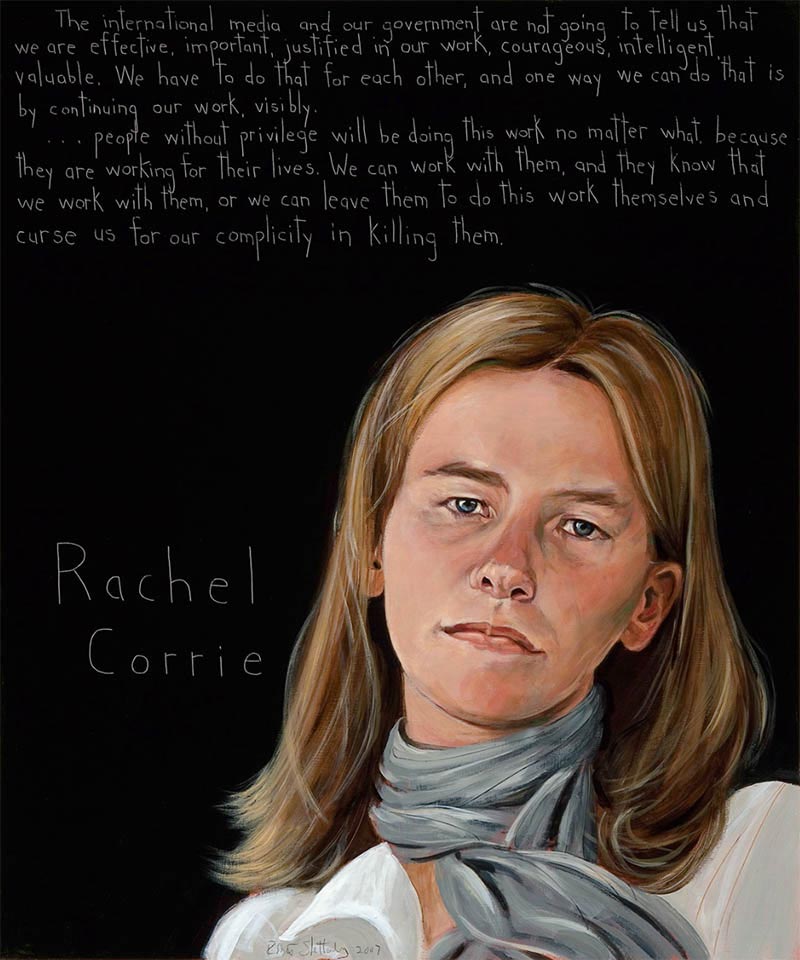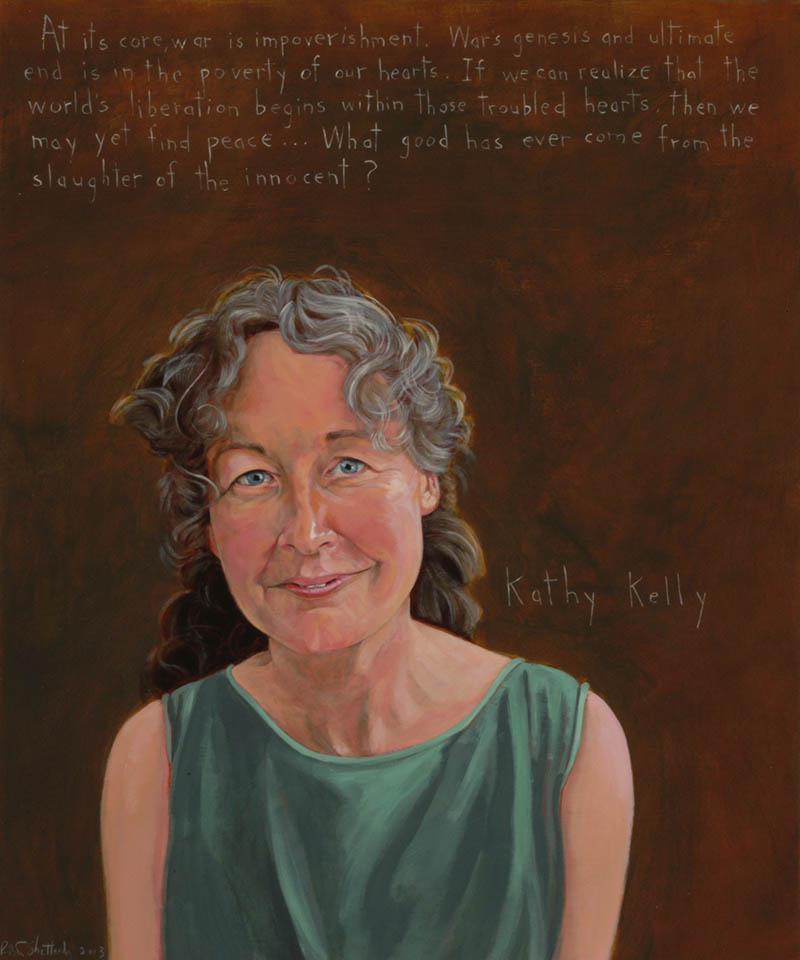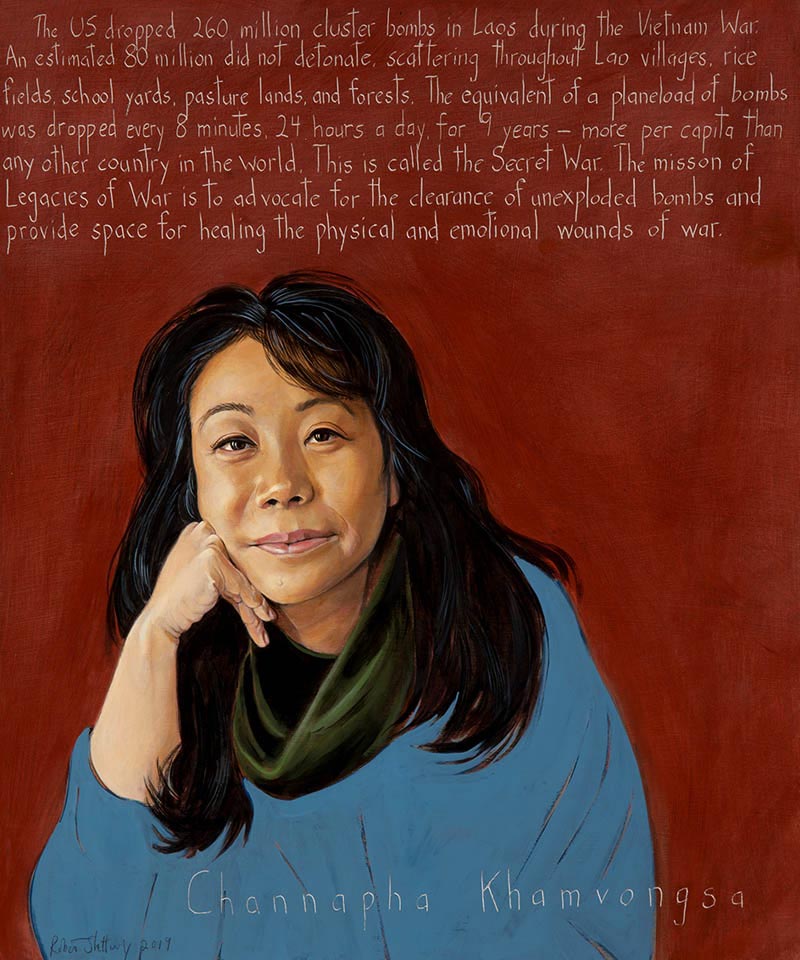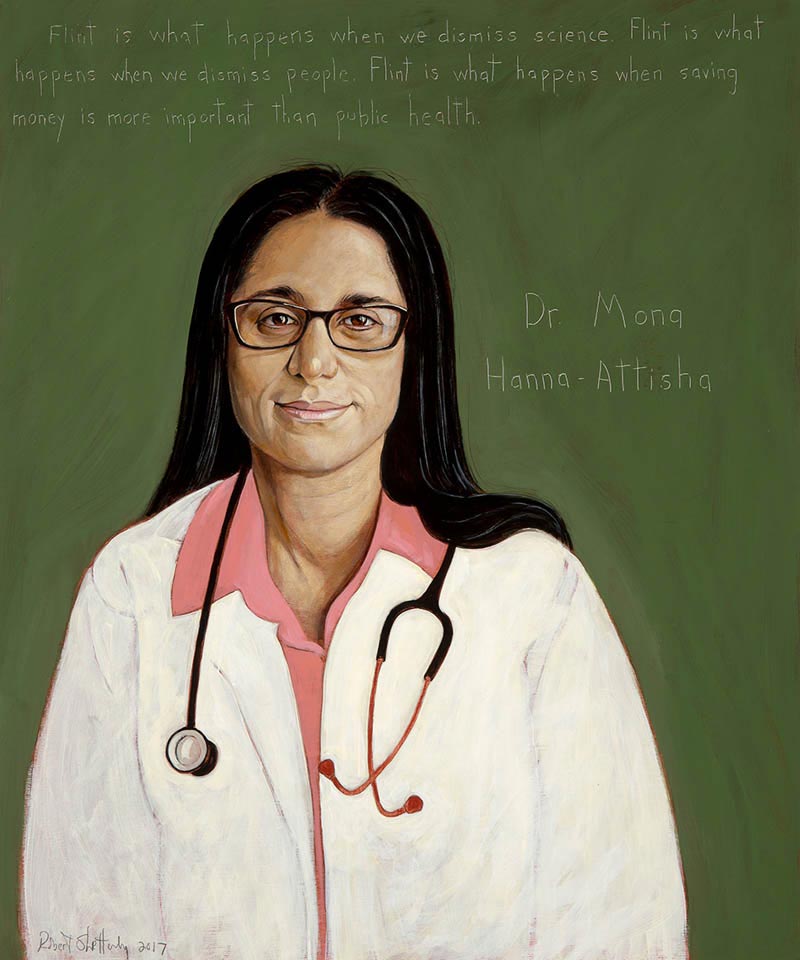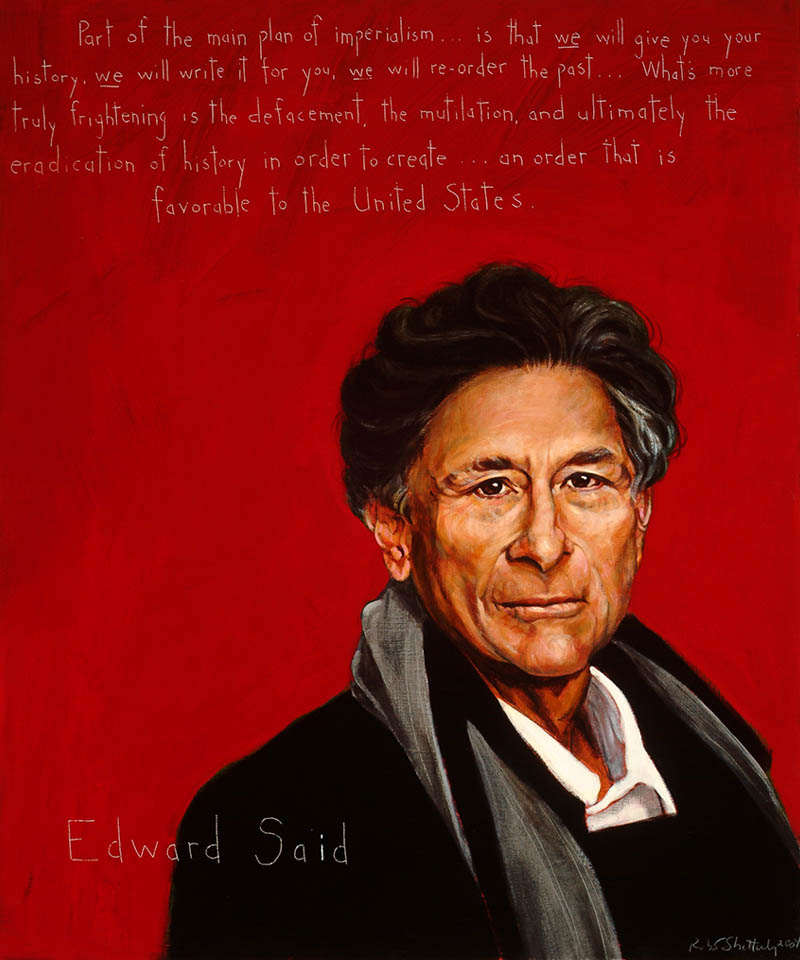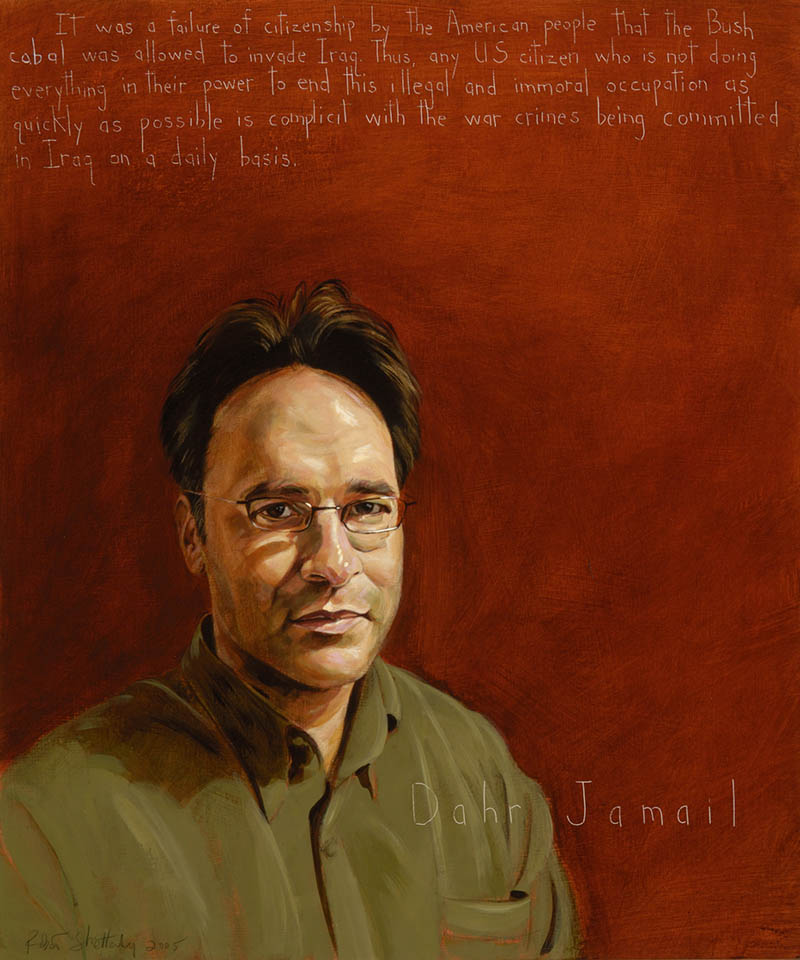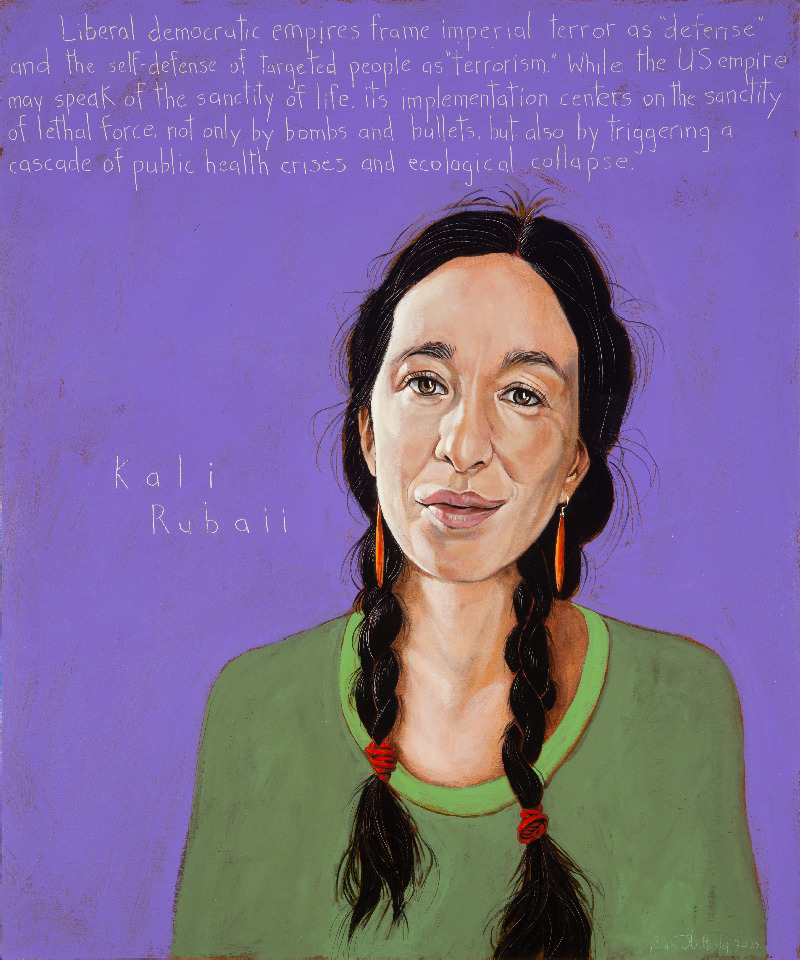
Kali Rubaii
Cultural Anthropologist, Anti-imperialist; b. 1987
“Liberal democratic empires frame imperial terror as ‘defense’ and the self-defense of targeted people as ‘terrorism.’ While the US empire may speak of the sanctity of human life, its implementation centers on the sanctity of lethal force, not only by bombs and bullets, but also by triggering a cascade of public health crises and ecological collapse.”
Biography
Highlight 1
In 2003, the United States invaded Iraq for a second time since 1991, after a decade of imposing deadly sanctions. This second Gulf War, launched as part of the global War on Terror, killed over 300,000 Iraqi people. According to the Costs of War, the 2003 U.S. invasion has left 9.2 million Iraqis internally displaced or as refugees.
The daily lives of those who remain are entwined with processes of ongoing destruction: air, water, soil, and bodies are saturated with toxins, not only from bombings but also from deregulated postwar industry. Basic health-sustaining infrastructure was levelled and remains at minimal capacity. Perhaps most destructive of all were the 100 Orders, policies drafted by the U.S. to restructure and privatize every sector of Iraq’s economy, thereby gutting the country of its own resources.
These byproducts of war are what Dr. Kali Rubaii, a cultural anthropologist, sees during her visits to Fallujah, Ramadi, and the rural communities of Anbar province. Through forensic ethnography, Dr. Rubaii’s research, writing, and activism bear witness to the environmental and health impacts of U.S. wars in Iraq and the extractive industries that fuel them.
Coordinating with farmers, researchers, doctors, and environmental activists, Rubaii documents the links between the epidemic of birth defects in Fallujah and military environmental damage to human health – including collapsed infrastructure, exposure to metals like depleted uranium and lead, and chronic displacement. She also investigates the concrete industry’s complicity in militarizing Iraq’s landscape and poisoning the air and waterways of the Bazian Valley. She has followed transnational mineral mining in Africa to weapons manufacturing in North America to munitions recycling in the Middle East – a supply cycle that exposes many communities to metals and byproducts, increasing risks of cancer and reproductive harm.
Rubaii has also called attention to Iraqi civilians’ exposure to U.S. military burn pits – open-air combustion of trash, including industrial chemicals, medical and human waste, munitions, tanks, uniforms, and e-waste. Describing U.S. military personnel exposed to burn pits, President Biden said “they come home, many of the world’s fittest and best-trained warriors in the world, never the same.” In August 2022, Biden signed the PACT Act, a law expanding VA health care for military personnel exposed to burn pits. Rubaii has been outspoken that the U.S. must compensate burn pit victims in Iraq, too. “While US soldiers and contractors faced acute, short-term exposure at peak health, Iraqi civilians faced diffuse, long-term exposure at all stages of their life course for over a decade.”
Rubaii notes that, “While toxic, burn pits are the least of people’s problems; they symbolize the toxic relationship the US has had with Iraq for decades. In Fallujah, it is not uncommon to hear from people who remember being tortured or maliciously treated by American soldiers, who had their homes destroyed more than once, who experience a very high number of miscarriages or stillbirths, who lived in a tent while displaced, who breathed in smoke from missile strikes, and who saw dead bodies floating down the Euphrates. The levels of violence – from the substances in the earth to the unnamed dead in the water – are not going away. This soil will not forget: with every sandstorm, people inhale the past of war.” The health effects of long-term exposure to burn pits, and to military violence more broadly, are compounded by the destruction of Iraq’s medical infrastructure, once the most robust in the region.
In addition to calling out the ongoing harms of warfare on Iraq’s environment and population health, Rubaii is also cofounder, with Debra Ellis and Ross Caputi, of the Islah Reparations Project. For over a decade, the organization channeled grassroots reparations from individual Americans to those violated by American empire, primarily in Iraq. Coordinating with lawyers, doctors, local organizers, and nonprofit volunteers, Islah has worked to accelerate resettlement for the displaced, facilitated medical treatment for those who face barriers to treatment, and supported grassroots community efforts to restore public space like skate parks and youth programs.
“In an ideal world, Iraqi survival would be funded with the same amount of political fervor that is put into any number of other violent enterprises. I want to see widespread grassroots support for Iraqi-led movements repairing the landscape, for rebuilding the health care system, and for people to seek recourse for property damage and human rights abuses by the US. Plunder-wealth should be redistributed to something that makes life possible for people who are continuing to suffer from the impact of the invasion.”
-authored by Ashley Kang
Related Portraits
Programs
Americans Who Tell the Truth (AWTT) offers a variety of ways to engage with its portraits and portrait subjects. Host an exhibit, use our free lesson plans and educational programs, or engage with a member of the AWTT team or portrait subjects.

Education
AWTT has educational materials and lesson plans that ask students to grapple with truth, justice, and freedom.

Exhibits & Community Engagement
AWTT encourages community engagement programs and exhibits accompanied by public events that stimulate dialogue around citizenship, education, and activism.
